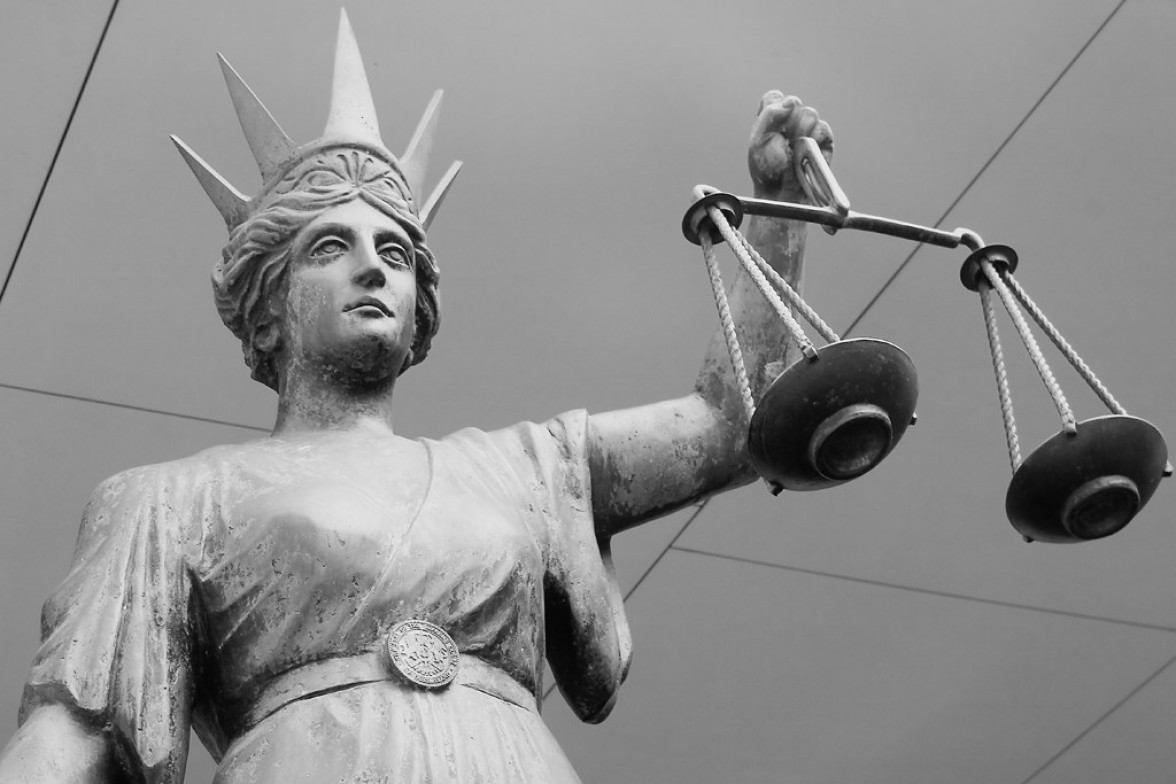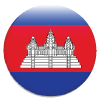
To Promote Justice for All, We Should Not Call Justice for One, But Justice For All.

Written by: Thea Sokna, a 3rd year student majoring in International Relations at The University of Cambodia
Edited by: Heng KimKong, a Visiting Senior Research Fellow at Cambodia Development Center and a PhD Candidate in Education at The University of Queensland, Australia

Photo Credit: Scales of Justice by Sheba is licensed under CC BY-SA 2.0
The COVID-19 community outbreak that started on 20 February 2021 has forced the Cambodian government to lockdown the capital city and a few provinces for weeks. During the lockdown, people must stay home to contain the spread of COVID-19, making them have more time to use social media, especially Facebook. Meanwhile, despite the pandemic, inappropriate behaviors are being popularized on various online platforms including YouTube, Facebook, Telegram and most notably the newly-launched mobile app, called “Tik Tok”. While the presence of inappropriate behaviors increases on social media, people tend to keep an eye on social issues as well. Public attention on a few recent cases regarding sexual offense and family violence is a telling example. Even though most Cambodians are dissatisfied with their own judicial system, their demand for justice for the victims has been prominent on social media networks.
This increasing and ongoing provocative movement is a positive sign of public participation in raising awareness of social issues such as sexual harassment that needs to be addressed; however, spotting on one particular event may bury other crucial phenomena or issues under the ground. In fact, it seems grossly unfair to ordinary victims who have encountered the same injustice or abuse, but they rarely have the chance to get public attention and can hardly gain access to the legal justice system due to some barriers such as intimidation, violence, fear of exposing the truth to family members and the authority, fear of losing reputation and so on.
Based on a report by the Cambodian League for the Promotion and Defense of Human Rights (LICADHO), one-thirds of sexual assault cases in Cambodia were perpetrated by family members, but the abusers were not prosecuted by the full weight of law due to family pressure and financial reliance on the victimizers. This has often led the victims to withdraw their complaints, leaving the perpetrators unpunished. The findings in the report clearly show how unhealthy Cambodia’s legal system is and the injustice many Cambodian families face when dealing with such immoral misconduct. Therefore, we should not turn the spotlight on only one event by ignoring the rest. In other words, people need not necessarily focus only on one recent case regarding sexual abuse. Instead, they should endeavor to explore and seek justice for victims of other previous and current criminal cases to bring about justice to all of them, regardless of their social status.
Last year, the Cambodian Centre for Human Rights published a report stating that “one in five women in Cambodia had suffered violence from partners, family members, colleagues, acquaintances or public officials.” Now, let’s imagine if there are a thousand women, that would mean 200 women had suffered violence, and that can be considered as 200 cases separately. Then why do people pay attention to only one case by ignoring many others? Women make up 51.19 percent of Cambodia’s population of almost 17 million, so how many Cambodian women would suffer from sexual abuse and violence if we only pay attention to only one or two special cases?
Justice is not preferred and deserved only by the rich, the famous, or the powerful, but it shall be entitled to all human beings equally without distinction as to race, nationality, religion, gender, and social status. Having said these, it does not mean that we need to oppose the current public’s impulse towards “making all women safe” – a social media trend that was triggered by an attempted rape allegedly committed by a tycoon on a young television presenter. Nonetheless, we should examine similar crimes committed in the past, contemplate the trend on the effectiveness of law enforcement in addressing all of the issues happening so far, and find ways to actively participate in strengthening the justice system in Cambodia rather than listen to a single story and react to it thoughtlessly and irresponsibly.
Meanwhile, the public should be obliged to provide support for other victims such as the environmental activists, political activists, human rights activists and journalists who have done the best of their efforts to fight for the benefits for our nation as a whole. They have been arrested, harassed, and some are detained and charged with different arbitrary allegations and detention. They are the victims who deserve our full attention and care. Non-governmental organizations and civil society organizations, especially rights groups, have already expressed concern over arrests and harassment of activists and journalists. But justice has yet to be served.
Since the outbreak of COVID-19 that began in early 2020, human rights violations have been a hotly debated topic among government-based commentators, social and political observers, and social activists. Again, the continuous social media claims for fair and impartial trial is a marvelous transitional change showing a sign of progress concerning how Cambodian people attentively show their interests and willingness to promote social justice. It also shows how they participate in encouraging law enforcement officers and the judicial branch to maintain the rule of law, provide equal protection for all, and ensure the due process of law.
In short, sensitive social phenomena such as sexual assault or violence against women and vulnerable people may easily capture the public attention, predominantly when it happens to a particular celebrity or high-status person in Cambodian society. As it can be observed, this kind of public’s customary habits might sometimes have its negative effect due to inappropriate and aggressive manners and words expressed unethically on social media. In an optimistic view, recommended solutions would be to avoid obsessive reactions to one event alone by critically looking at the larger landscape of the problems and its pattern in order to generate rational ideas and to draw logical conclusions. Being a well-informed and active citizen in a fragile democratic country like Cambodia, it is important to be rationally matured as Paul Wellstone, an academic and a former US senator, once said, “as free citizens in a political democracy, we have a responsibility to be interested and involved in the affairs of the human community, be it at the local or the global level.”




